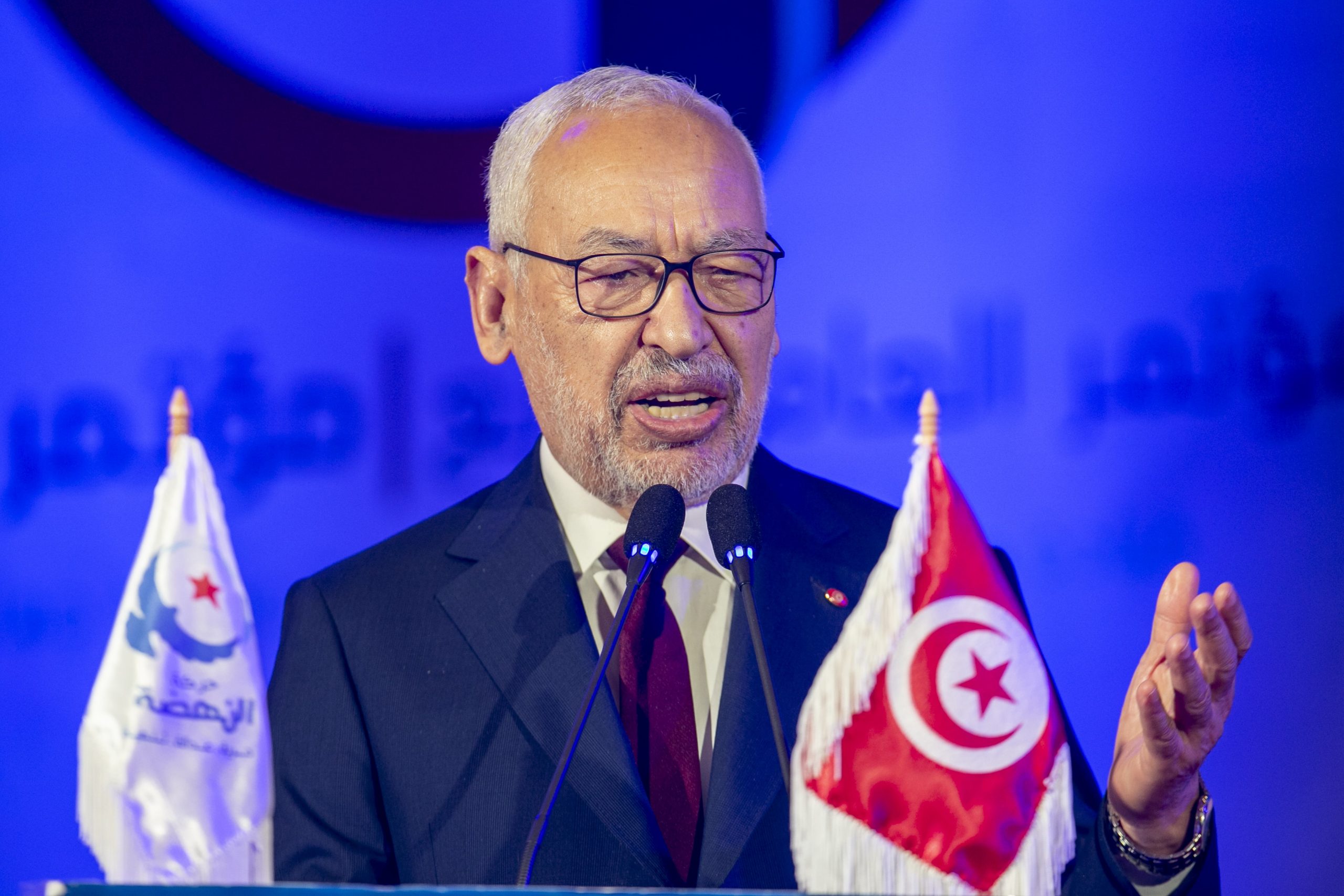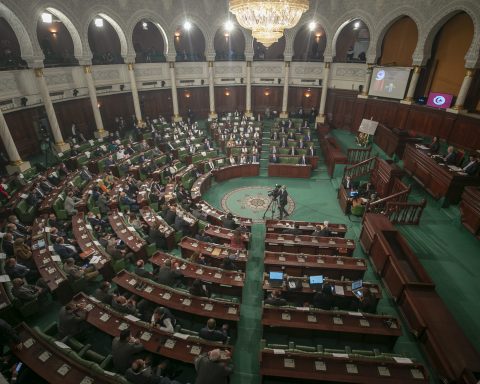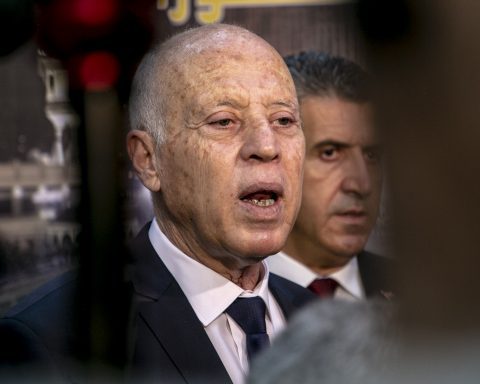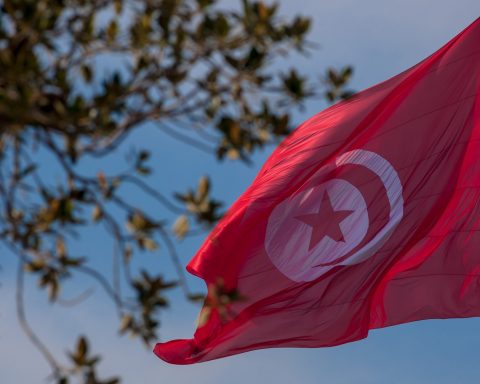Tunisian Parliamentary Speaker and leader of the Ennahda Movement, Rached Ghannouchi, stated that the Movement received the message of the people and that they would boldly announce their self-criticism, adding that he would “follow the rule of two-term presidency” as stated in the party’s bylaws and that he could leave the presidency at the next congress.
Expressing that the Ennahda Movement is ready to “make sacrifices to complete the democratic path,” Ghannouchi indicated that he respects the bylaws of the Movement and that he will resign from the leadership of the party at the end of his second presidential term, which is the end of this year.
Pointing out that more than 15 days have passed since the measures were announced by President Kais Saied, Ghannouchi said, “Everyone agrees that there is uncertainty and lack of vision despite the assurances announced. There is still no government in Tunisia, the prime minister has not been announced, and the parliament is still closed,” he said.
Ghannouchi stated that those who claim that democracy will end in Tunisia are in a delusional world. “There are arrests in the ranks of MPs, travel bans for everyone, extensive restrictions on freedoms. All these practices remind Tunisians of old times. We do not know of a democracy that has created a revolution in history. There may be a limited setback in time, but democracy will soon regain its strength and correct its mistakes,” he continued.
Noting that the revolution did not achieve economic and social success, Ghannouchi pointed out that this reaction was during a new democratic experience, in a fragile electoral system, and during a great economic crisis deepened by the health crisis.
Regarding the role of the army in what happened in Tunisia, Ghannouchi said, “I think that the Tunisian army is the republican army and is far from engaging in political competition. In such cases, the army is expected to protect state institutions and vital institutions. Political leaders should not include the army, judiciary, and security forces in areas of political disagreement.”
Pointing to the broadcasts of some United Arab Emirates (UAE)-based TV channels on the events following July 25, Ghannouchi said, “To understand the extent of foreign intervention, it is enough to follow the broadcasts of some Arab channels that aim to confuse or even destroy Tunisia’s spring in their broadcasts about the Tunisian issue and the demonization of democracy. God willing, they will be disappointed.”
Tunisia has been in the midst of a serious political crisis since Saied decided to dismiss the Head of Government Hichem Mechichi and to freeze the powers of the parliament for a period of 30 days, as part of exceptional measures by the deterioration of the country’s economic situation. The measures were regarded by certain parties, including the Ennahda Movement, as a “coup against the Constitution.”














